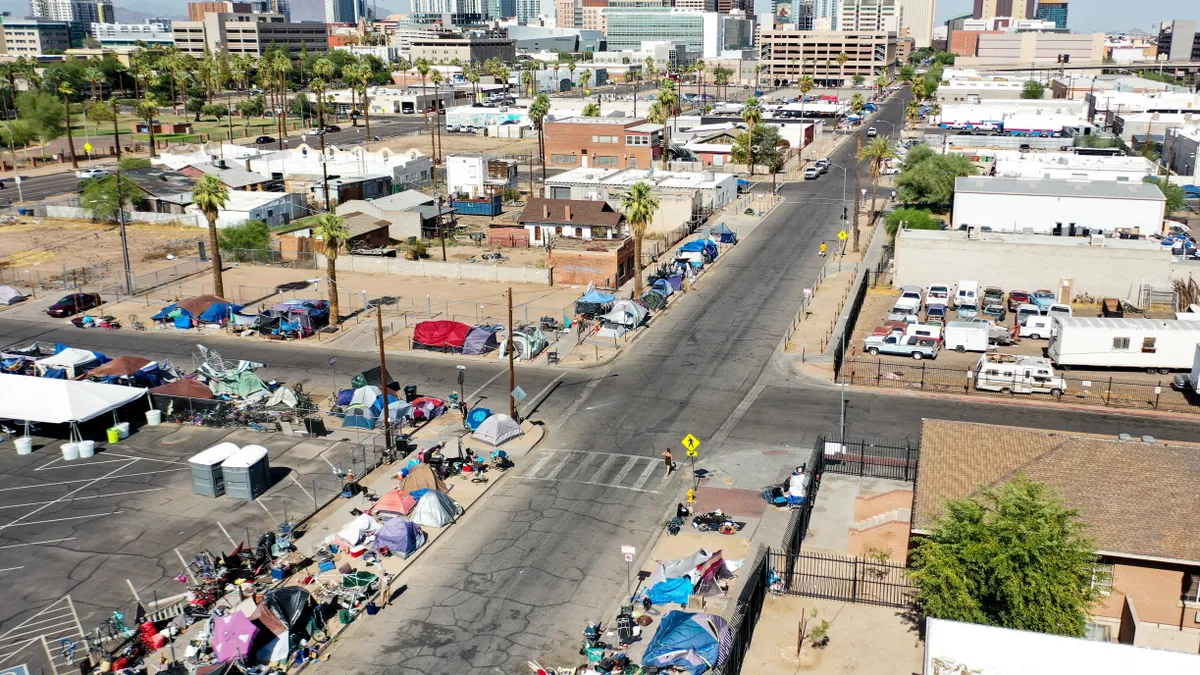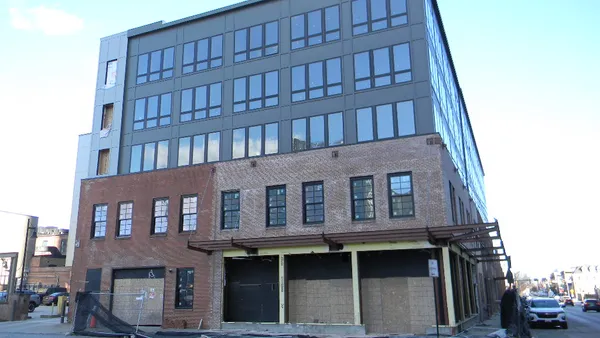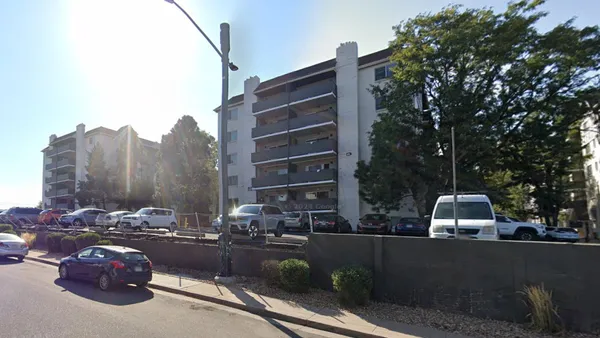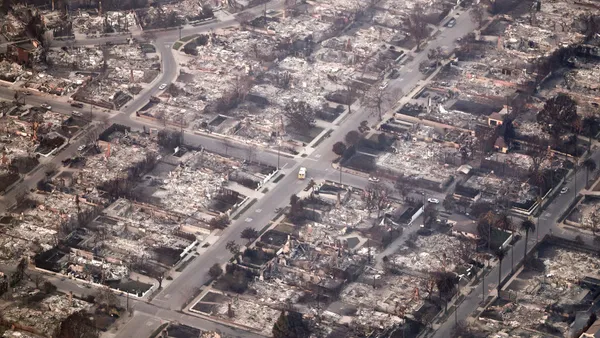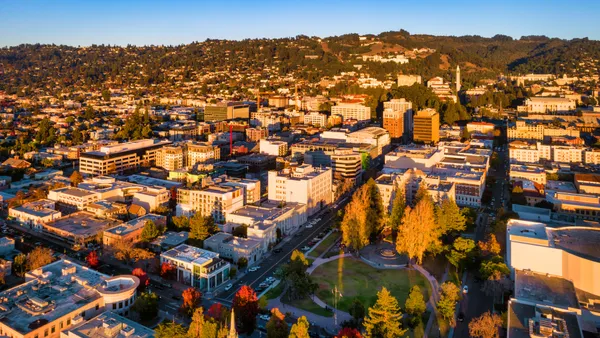Dive Brief:
- Through a federal initiative announced Thursday, the U.S. Interagency Council on Homelessness and its 19 federal member agencies will accelerate local efforts to tackle unsheltered homelessness in six places: Chicago, Dallas, Los Angeles, Seattle, the Phoenix metropolitan area and the state of California.
- The “ALL INside” initiative will work closely with these communities for up to two years, offering each the assistance of a dedicated federal official and teams to navigate federal funding streams, facilitate a peer learning network across the selected communities and identify opportunities for regulatory relief and flexibilities.
- As part of the initiative, which the announcement described as “first-of-its-kind,” a slew of federal agencies launched new efforts to address barriers for communities and people to access federal housing resources and support.
Dive Insight:
Unsheltered homelessness in the U.S. rose during the pandemic, the announcement says. For the first time, more people experiencing homelessness are living and sleeping in tents, transit stations and other unsheltered locations than in shelters or transitional housing.
“Our nation’s homelessness challenge at its roots comes down to an inadequate supply of housing, but it also intersects with mental and behavioral health, substance use and so many other key issues,” U.S. Domestic Policy Council Director Susan Rice said at a Thursday press conference.
The Biden-Harris administration aims to reduce the nation’s homelessness 25% by 2025. In April, the U.S. Department of Housing and Urban Development announced $486 million in grants to help 62 communities address unsheltered homelessness and homeless encampments. Several of these grants went to communities selected for the “ALL INside” initiative, with $60 million going to Chicago, $22 million to Dallas, $60 million to Los Angeles and $36 million to other California communities.
The six selected locations “understand that only by working together, by cutting across traditional silos, by trying new things and by building on what works can we truly make progress on this nettlesome issue,” said Veterans Affairs Secretary Denis McDonough, who is also the chair of the U.S. Interagency Council on Homelessness, at the press conference.
City leaders attending the press conference responded positively to the new initiative. Seattle Mayor Bruce Harrell said that the initiative “could not have come at a better time.” While embracing the city’s fast growth, Harrell said that people are “still falling through the cracks. The safeguards are not in place.”
Homelessness must be addressed on a regional level, said Mesa, Arizona, Mayor John Giles Thursday. Both Mesa and Phoenix are in Maricopa County, part of the Phoenix metropolitan area.
Los Angeles Mayor Karen Bass called the new initiative “historic,” just a day after joining 12 other mayors of large California cities to call for more permanent state funding to help communities address homelessness.
Los Angeles has moved over 1,200 people experiencing homelessness into motels through its Inside Safe program, launched in December, but the city faces a “bottleneck” to get people into permanent supportive housing, Bass said. She said the federal “ALL INside” initiative may help by allowing Los Angeles to examine options like presumptive eligibility “that would allow people to be housed right away instead of spending months while we compile documents and verify that they’re in fact in need.”
As part of the new initiative, the U.S. Department of Health and Human Services will provide technical assistance to communities to help them use federal programs such as Medicaid to cover housing-related services and behavioral health care. HUD and HHS will join the Department of Veterans Affairs and Social Security Administration in addressing barriers people face when obtaining government-issued identification and critical documents.
The Social Security Administration will work within the federal government and with communities to facilitate access to support services, such as housing vouchers or Medicaid, by leveraging data-sharing and regulatory flexibilities.
The U.S. Department of Labor will work to leverage local and state government employment opportunities for unsheltered youth by connecting communities with local workforce boards and Job Corps sites. Communities will receive technical assistance from the Federal Emergency Management Agency to better coordinate operations in response to disasters, which often increase homelessness.
The Biden-Harris Administration will also bring together philanthropy, the private sector and other communities to identify collaboration and support opportunities.



